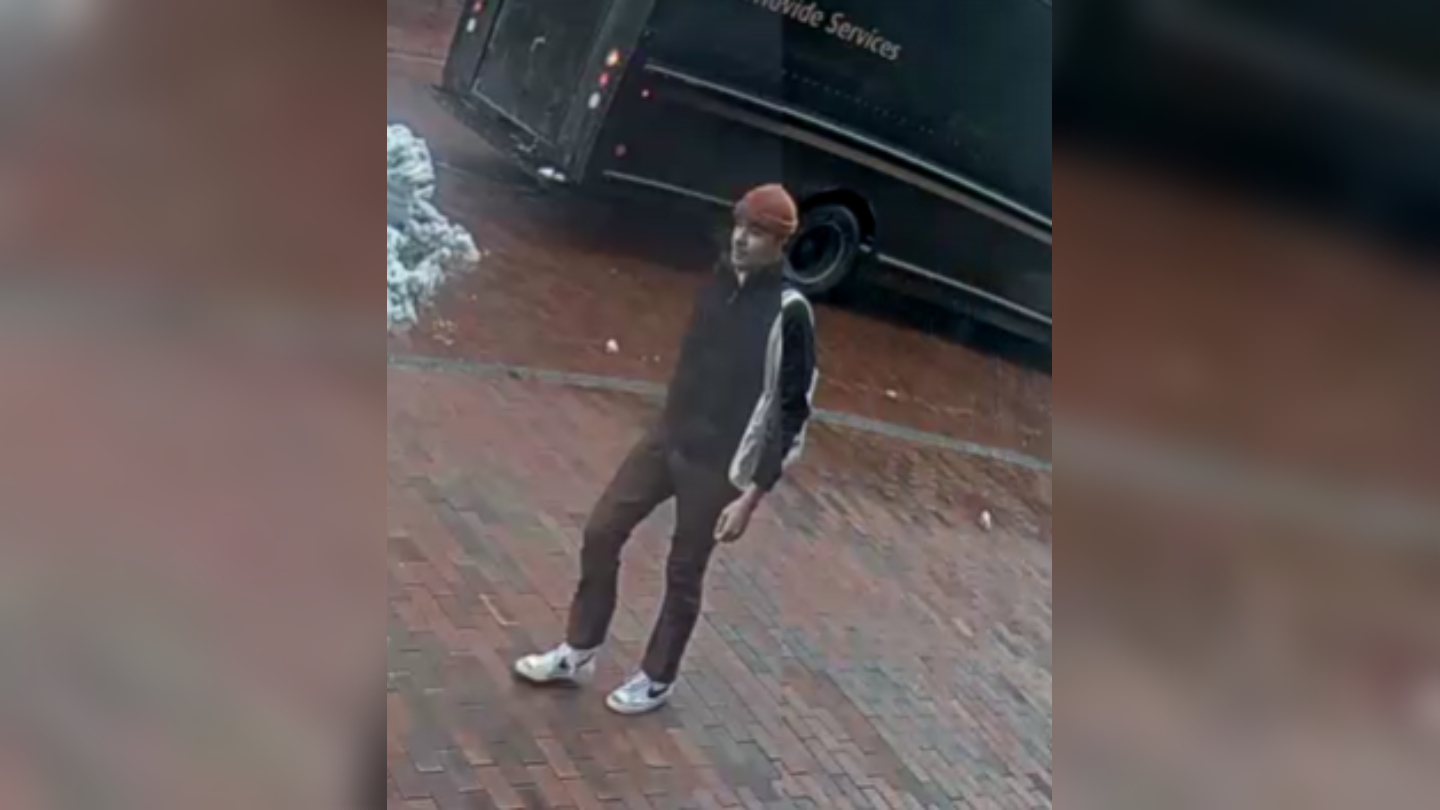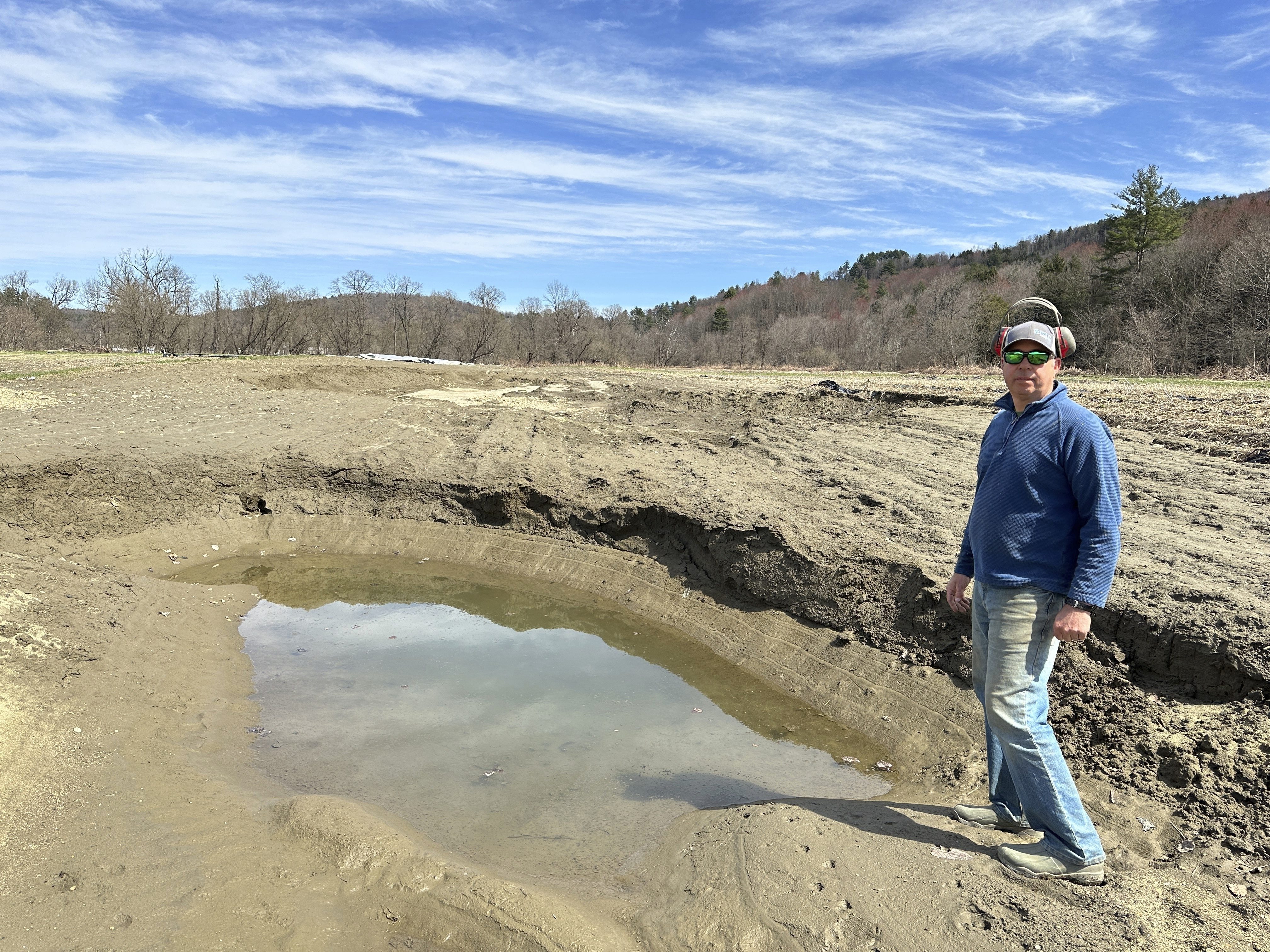A new eruption of measles in the United States, with the Centers for Disease Control reporting more than 100 cases in 14 states across the country, has prompted a Vermont lawmaker to revisit the state’s vaccination exemption rules.
"We really need to do a better job," said Sen. Kevin Mullin, R-Rutland County.
Vermont requires children to get vaccinated against several diseases, including measles, before attending school. However, parents can bow out of vaccines for their children on the basis of religious or personal beliefs.
Mullin's proposal would eliminate a parent’s ability to cite personal beliefs, known as the "philosophical exemption" to excuse their child from receiving the shots.
"The public’s talking about the issue again, so I think it’s important that legislators talk about the issue," Sen. Mullin told New England Cable News. "It just doesn't make sense for us not to be protecting the population."
After this year's measles cases emerged, most linked to exposure at Disneyland in California, many physicians have urged parents to seek out the measles vaccine for their kids, saying it is safe and effective.
"Without vaccines, I can't even begin to describe how sick this country and this world would be," said Dr. Lewis First of the University of Vermont Children's Hospital.
Vermont
The latest news from around the state
Jennifer Stella, with the citizen's group Vermont Coalition for Vaccine Choice, told NECN she does not want to see Vermont tinker with its existing rules around the philosophical exemption.
"I'm advocating for health choice," Stella said.
Stella said she questions the effectiveness of immunizations over time, and is concerned about their potential for adverse reactions. She also said she disagrees with a U.S. Supreme Court ruling that shielded vaccine makers from product liability claims in state courts from plaintiffs seeking damages for a child’s injuries allegedly stemming from a vaccine's side effects.
"Parents should be making medical decisions for their children," Stella said. "We would hate to see, at the end of the day, the state getting involved in making medical decisions for children because parents are the ones charged with caring for these children."
Most, but not all, parents in Vermont have their children vaccinated. The 2013-2014 numbers from the Vermont Health Department show 86.9 percent of public school kindergartners were considered fully vaccinated. More than 90 percent of them had coverage for individual vaccines, the department data shows.
Numbers for private school students are lower, according to the Health Department figures, with 72.2 percent of kindergartners considered fully immunized and fewer than 80 percent of the private school kindergartners having coverage for individual vaccines.
The overall kindergarten number dropped a point over the prior two years, to 85.8 percent, the data shows. The number of seventh graders who received all their recommended vaccine doses increased by a fifth of one percent over the previous year, to 88.9 percent, according to the Vermont Health Department.
Click here for more information on immunization surveillance and school data in Vermont.
In 2014, the U.S. saw a record number of measles cases, the CDC said. Twenty-seven states saw 644 cases, according to the CDC’s measles outbreak page. That is the greatest number of cases since the disease was essentially declared eliminated in the United States in 2000.
Gov. Peter Shumlin, D-Vt., told reporters Wednesday that getting vaccines is common sense.
"Get your kids vaccinated," he said. "They work."
However, Shumlin also said lawmakers should leave the philosophical exemption alone. He said the state has already had conversations about rolling back the exemption, as recently as 2012. Shumlin said the balance resulting from the 2012 discussions between public health and safety and a parent’s ability to seek an exemption was “elegant” and seems to be working.
A coalition of health care groups called the Vermont Immunization Action Network issued the following statement in response to Gov. Shumlin's comments on the philosophical exemption:
“Governor Shumlin’s comments today regarding his support for the philosophic immunization exemption are of great concern. Obtaining an exemption from immunization can have widespread implications on the public health and safety of all Vermonters.
The ongoing measles outbreak, that has now reached our neighboring state of New York, is a frightening reminder of just how quickly deadly diseases can spread. We all remember what happened in Vermont two years ago when whooping cough surged across our communities. It’s time to end the debate about the safety of immunizations.
Scientists and public health officials here in Vermont, across the country, and all over the world have studied vaccines for decades and found them to be safe. Vaccines can, and do, save lives.”
The Vermont Department of Health maintains a website called It’s OK to Ask that aims to answer parents’ questions about childhood immunizations.



